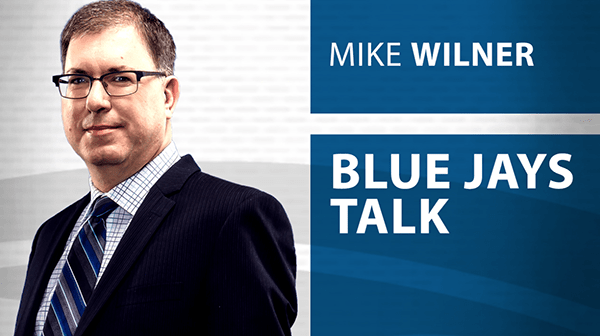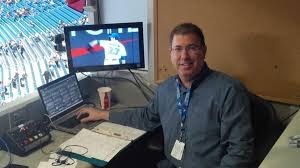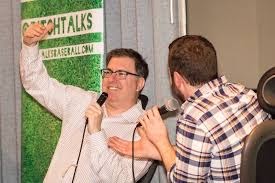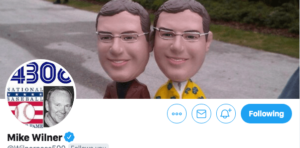
Blue Jays fans everywhere know the voice of Mike Wilner. For eighteen seasons he has brought the game and it’s stars to radios across Canada. Since starting his career in the late 80’s, he has been talking to, and about, athletes in every sport. From spring training in Dunedin, Florida to the Winter Olympics in Whistler, British Columbia, from aspiring amateurs to legendary professionals, Mike Wilner has talked to them all. So we are very fortunate that he can join us for an interview about interviews.
Go with what you know.
Really good question because often I don't. Generally my preparation is based mostly on living the daily life of the baseball season. I know what to ask from having watched the last game, and having been around them all season. If I want to talk about a specific thing that happened in the past I'll look it up but I've gotten pretty good at knowing those kinds of things generally. When doing long form interviews with former Blue jays, I’ll go back and confirm that I remember certain events the way that it actually happened.
 Stick to “who” and “what”.
Stick to “who” and “what”.
When you introduce somebody you want to let your audience know who they are and what they've done but you don't wanna take any of their stories that way. I think it should be super short. It should be this is who I'm talking to and this is what we are talking about.
Put yourself in the listeners place.
I think that the job of an interviewer is to stay out of the way. The most interesting interviews or the one where the subject is doing ninety percent of the talking, and the interviewer just draws things out and listens along with the audience. If you're listening, and thinking “I want to find out more about this subject” and they ask about that subject, than you are doing the right thing as an interviewer.

Remember why your audience is listening.
I mean it is like a flip of a coin. Making it too much about the interviewer and not enough about the subject. They're not there to hear about you or about your life. They're here for the person you are interviewing. Don't interject your own experiences. Don’t steal their thunder. Don't tell their stories for them.
Ask about their pets or hobbies.
Generally for me, if it is a bad interview it's because I'm getting one word answers. It’s your job to make them more comfortable, and to find a way to make them talk about themselves. Most people are actually uncomfortable sitting down to talk about themselves. So maybe take the subject off of them at least for a moment. See if you can get them to open up a little bit try it from a different perspective, from a different angle.
It’s part of the job.
To be up front about don't try to hide it, don't try to sneak it in. Don’t look for a “got ya”,or anything like that. I'm very upfront about it. I just say, “look I wouldn't be doing my job if I didn't ask you this” and then I ask what needs to be asked. I don't talk to the politicians or world leaders. I talk to athletes, I work in the toy department. So the most difficult question I generally have to ask is about a mistake that I believe has cost their team.
Want to get better? Repetition.
The most important thing is, the more you do something the better you will get at it. I'm a veteran interviewer now but I was very different thirty years ago. Because you figure out what works for you and what doesn't, and that's what gets you better. Work at it as often as possible
@Wilnerness590
